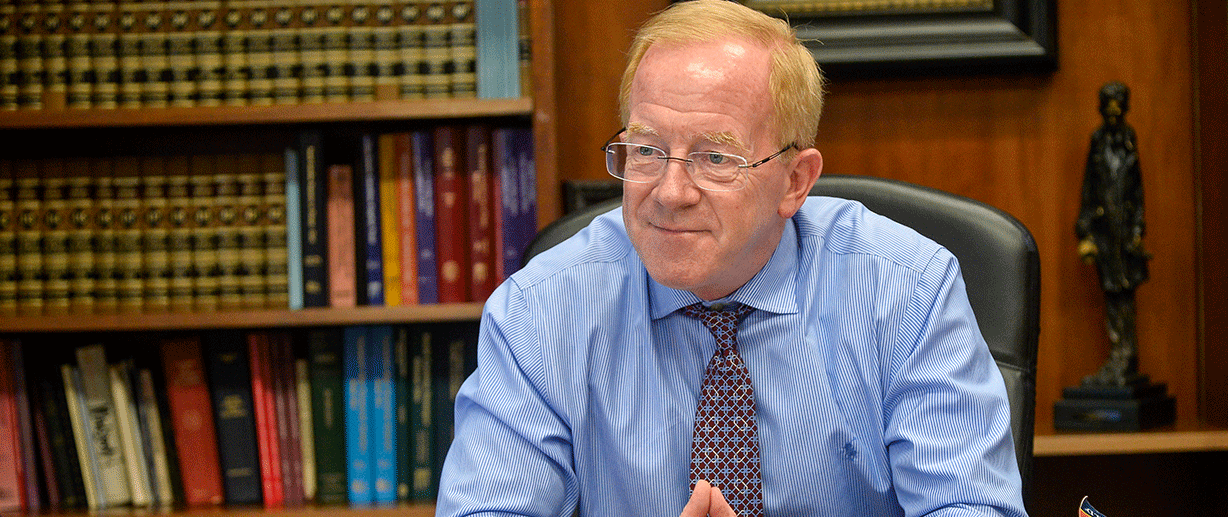After graduation from law school, the Hon. Mark Hayes ’80 clerked for the Hon. E.C. Burnett III ’64 in Spartanburg. Now he’s using those same chambers in the Spartanburg County Courthouse as South Carolina Circuit Court judge, a position he’s held since 2003, adding his name to a long line of Wofford judges.
“Per capita, Wofford has a great representation in the state judiciary, which speaks well for the way Wofford prepares you for a career in the law,” Hayes says.
Burnett eventually was appointed to the state Supreme Court, and he gave Hayes a taste of what service on the state’s highest court would be like. Hayes has since filled in several times as an acting associate justice.
Before becoming a judge, Hayes had a successful private practice and did significant work with local schools and educational institutions. Now he is making his mark from the bench. On Aug. 4, 2018, the South Carolina Association for Justice gave Hayes the Outstanding Contribution to Justice Award (Judicial Portrait Honoree). He’s wearing his Wofford tie and Wofford ring in the portrait. In addition, the Spartanburg County Bar Association renamed the Spartanburg County Bar Association Annual Law Day Essay Contest in Hayes’ honor; it’s now the Judge J. Mark Hayes Law Day Essay Contest. In 2011 the Spartanburg County Bar Association recognized him with the Justice Claude A. Taylor Distinguished Service Award, and he holds a South Carolina Board of Education Award for contributions to South Carolina’s public schools.
In 2017, Hayes established an endowed scholarship at Wofford through the Trustee Matching Fund to support students in their junior or senior year who are planning to pursue a career in the law or public service. Most recently, he has been helping Wofford psychology majors gather research for their senior thesis projects.
Hayes takes his work on the judiciary seriously, and he believes wholeheartedly in the importance of honorable people choosing careers in the law. His article, “Shakespeare, Really, ‘Let’s Kill All the Lawyers,’ Even the Heroes Among Them?” was published in the Justice Bulletin, a publication of the South Carolina Association for Justice in 2015.
“An education in the law can be a powerful thing,” says Hayes. “Lawyers are neither salesmen peddling the wares of others, nor are they craftsmen implementing the designs of others. Lawyers are public citizens and as such have obligations to this aspirational country we call America. Lawyers stand as stewards of public order, justice and democracy.”
For students considering a career in the law, Hayes says, “If you seek a career that promotes bettering the lives of individuals or you desire a more expansive professional horizon, one that necessarily requires the shaping of your community’s or of our nation’s public policies, being a lawyer affords you direct access to a justice system where those goals can be achieved. As a lawyer you will be a direct participant in that system, a system in which a lawyer is beholden foremost to what is right and just. More importantly, the power and the rule of law make lawyers the architects and catalysts in making the American dream attainable for everyone and for protecting that dream from abuse.”
By Jo Ann Mitchell Brasington '89
